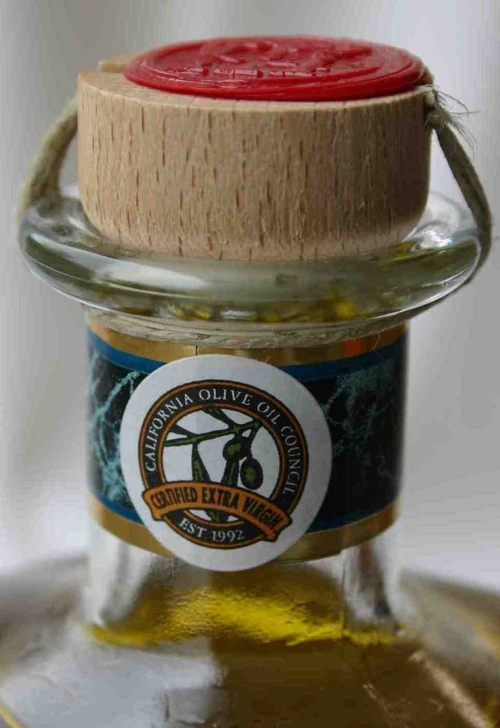'Extra virgin' olive oil: What is it and why does it matter?
Dipping fresh bread into olive oil has become a popular alternative to coating it with butter. Olive oil consists of 85 percent unsaturated fats, and when substituted for saturated fat in the diet can promote ”good” cholesterol (high density lipoprotein or HDL), reducing risk of coronary artery disease.
Some olive oils are more beneficial than others. "Extra virgin" olive oil (EVOO), for instance, is extracted from the olive fruit without using heat or chemical solvents. This mechanical process retains the highest amount of natural “phenolic compounds” — antioxidants and anti-inflammatory agents. Such compounds both retard oxidation in the olive oil (keeping it fresh and preventing rancidity) and confer health benefits.
Miller's diagram (above) depicts the fatty acid content of olive oil. PUFA is polyunsaturated fatty acids.
"Antioxidants combat cell and tissue damage due to oxidation, and anti-inflammatory agents reduce inflammation throughout the body. Inflammation can lead to an array of diseases (arthritis, coronary artery disease and more),” said Amy Myrdal Miller, registered dietitian and a program director at The Culinary Institute of America.
When oils are 'refined,' heat or chemical solvents strip away phenolic compounds; the result is often a bland flavor. Mechanically extracted "extra-virgin" oils retain aromatic components. Pungent, peppery and sometimes bitter notes signal that an oil contains phenolics.
The growth of premium olive oil production in California has its roots in 1997, when UC Cooperative Extension Sonoma County Advisor Paul Vossen started the first olive oil taste panel in California to help producers improve oil quality using sensory analysis. (See the January 2011 California Agriculture.)
When it comes to detecting positive and negative attributes of olive oil, human tasters are superior to current chemical analytical methods. Standards to define "extra-virgin" and other grades of oil include both sensory and laboratory measures. The International Olive Council's (IOC) narrow definition specifies that EVOO must show no evidence of heat or chemical solvents. It must have zero median "defects" (as judged by trained taste panels) and more than zero median fruitiness. It must meet requirements for low levels of free fatty acids (too many of these signal degradation) and peroxide levels (a sign of oxidation).
This definition has been adopted by the U.S. Department of Agriculture (USDA) and the states of California, Connecticut and Oregon. Beginning on Oct. 24 of 2010, it became part of new USDA standards for olive oil labeling, which also define "U.S. Virgin," "U.S. Refined" and other grades. Although the standards are voluntary, any manufacturer using this terminology on its label could be held to truth-in-labeling laws.
While the ultimate impact of the new USDA standards will take time, consumers can learn to identify flavor attributes of California olive oils by participating in tastings at vendors that feature artisan products. Also, the
California Olive Oil Council awards an extra-virgin certification seal to member oils that are defect-free.However, the array of olive oils now available at supermarkets can be daunting, and "extra virgin" on the label can be misleading. The UC Davis Olive Center reported in July 2010 that their samples from Sacramento, San Francisco and Los Angeles supermarkets revealed 69 percent of imported EVOO and 10 percent of California olive oil samples labeled as EVOO failed to meet International Olive Council (IOC)/USDA sensory standards for extra virgin olive oil.
Once you identify your favorite olive oil, it should be stored in a cool, dark environment, like a kitchen cabinet removed from the stove, according to Alexandra Vicenik Devarenne, freelance olive oil consultant in Sonoma County. Fluctuations in temperature and light affect the integrity of the health-promoting phenols in extra virgin olive oil.
“When people find out about phenolics and the effects of heat on olive oil, they may question whether it is safe and okay to cook with extra virgin olive oil,” she says. “The heat will destroy some of the health-promoting phenols in the oil, which will change the flavor. The longer the oil is exposed to heat, and the higher the heat, the more phenols will be destroyed.
“However, sautéing in extra virgin olive oil for 5 to 10 minutes over medium heat will have minimal effects on phenols and flavor.”
See more tips on storing and cooking with olive oil.




Posted by janet Shellaberger on December 2, 2010 at 1:50 PM